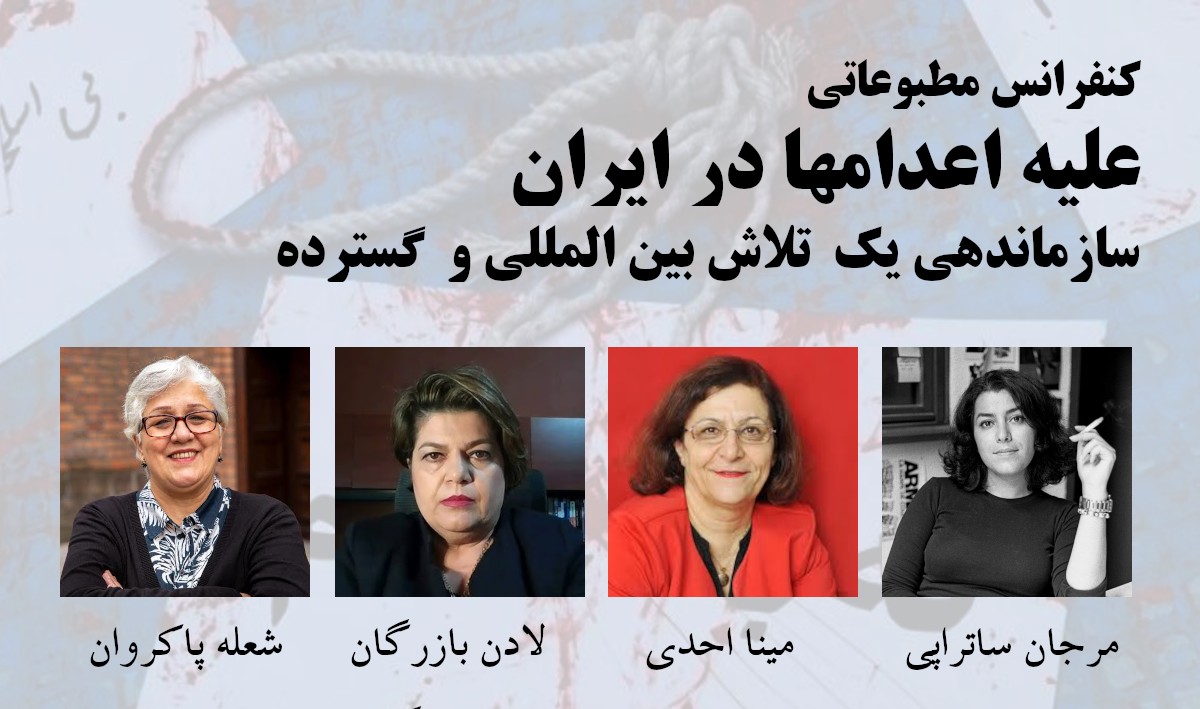Four prominent activists—Marjane Satrapi, Sholeh Pakravan, Mina Ahadi, and Ladan Bazargan—have launched a collective initiative to campaign against the death penalty in Iran. The campaign seeks to gather signatures from a wide range of activists, including women’s rights advocates, labor and teacher unions, families of victims, political prisoners, war veterans, and various human rights organizations. Their goal is to draw public attention to what they describe as a growing crisis of executions under the Islamic Republic.
The campaign organizers have highlighted the alarming rise in executions, with over 250 reported under the current administration—an average of five executions per day. This surge reflects an intensifying crackdown, particularly against dissent. Calls for urgent action have resonated across Iran and internationally, with the activists urging governments, media outlets, and human rights organizations to respond decisively.
Marjane Satrapi emphasized the importance of international pressure, referencing the case of political prisoner Toomaj Salehi. She linked the campaign to historic struggles, such as the fight against apartheid in South Africa, underlining the power of global solidarity in pushing for change.
In a statement endorsed by victims’ families and human rights defenders, the campaign outlined the dire conditions in Iranian prisons. It highlighted the slogan “No to Execution,” which has echoed from women’s wards in Evin Prison and other facilities, as a symbol of widespread resistance.
Mina Ahadi spoke about past campaigns and stressed that abolishing the death penalty has become a public demand. She called for its permanent elimination under any future government in Iran.
The campaign has issued specific appeals to different groups:
- To the People of Iran: Protesters are urged to take to the streets and amplify their demands to end executions and systematic human rights violations.
- To Human Rights Organizations: Groups like Amnesty International and the UN Human Rights Council are called upon to increase pressure on Tehran and ensure continuous monitoring of prisoner conditions.
- To Governments and International Bodies: Diplomatic and legal actions are demanded to hold the Islamic Republic accountable. The closure of Iranian consulates, as seen in Germany following the execution of dual citizen Jamshid Sharmahd, is presented as a model for international action.
- To Journalists and Media Outlets: Greater focus on the rising execution rates and systematic abuses is encouraged to foster global awareness and solidarity.
- To the Iranian Diaspora: Iranians abroad are urged to organize demonstrations, meet officials, and lobby governments to take action.
Ladan Bazargan underscored the campaign’s hope for a better future and the significance of gathering widespread support within 48 hours. She referenced the “No to Execution Tuesdays” initiative as an example of growing momentum and the courage of families to stand against execution rulings. She emphasized the value of human life, declaring that the Islamic regime has no right to take it.
The campaign also highlights the cases of Vrishe Moradi and Pakhshan Azizi, two female political prisoners currently facing execution. International protests are planned for November 25, coinciding with the International Day for the Elimination of Violence Against Women, aiming to transform the day into a global outcry against the death penalty in Iran.
Sholeh Pakravan criticized Iran’s judicial system, particularly the “judge’s knowledge” principle, which allows verdicts based on subjective judgment rather than evidence. She condemned the use of execution as a tool of injustice, describing it as perpetuating suffering and lawlessness, and called on everyone to join the protests against death sentences.
The campaign concludes with a vision for a just and peaceful society based on equality and human rights. Its organizers reject all forms of state violence and demand justice not only for the executed but also for their grieving families.
This initiative has already drawn international attention, but Iranian activists continue to face significant risks of retaliation as they strive to keep the issue in the spotlight.









